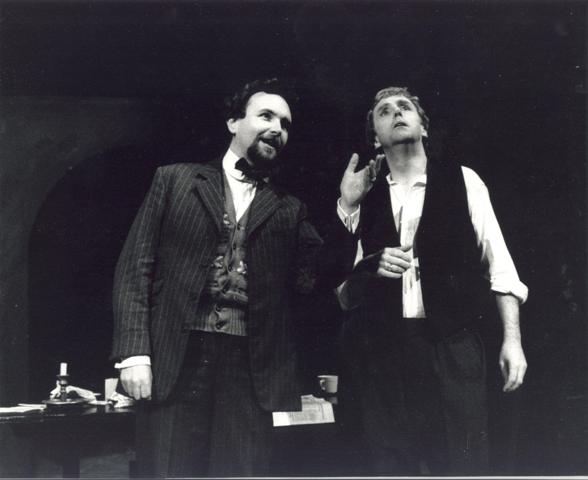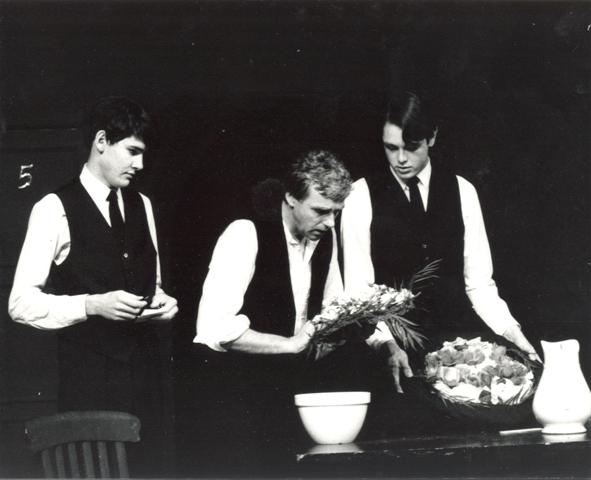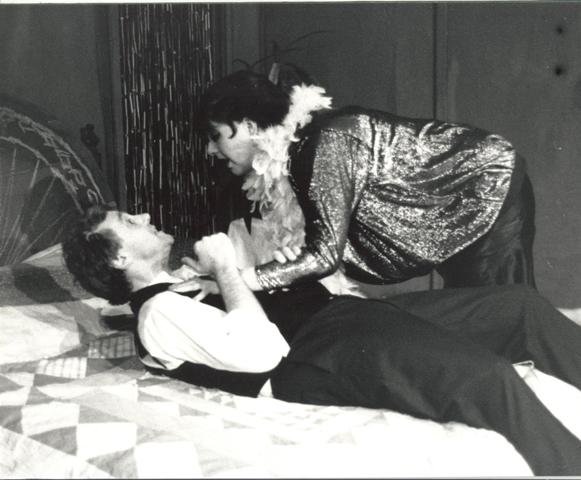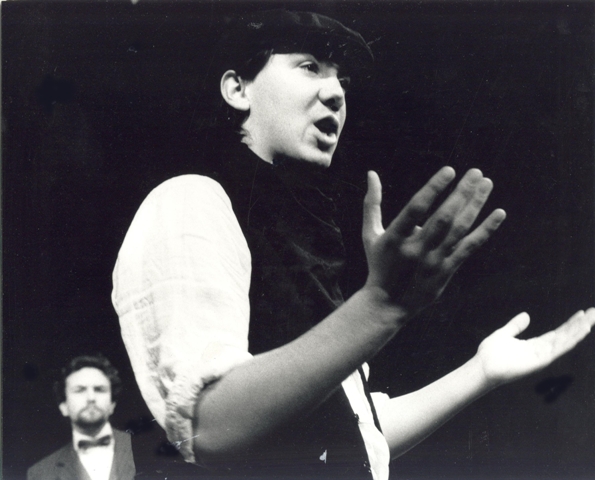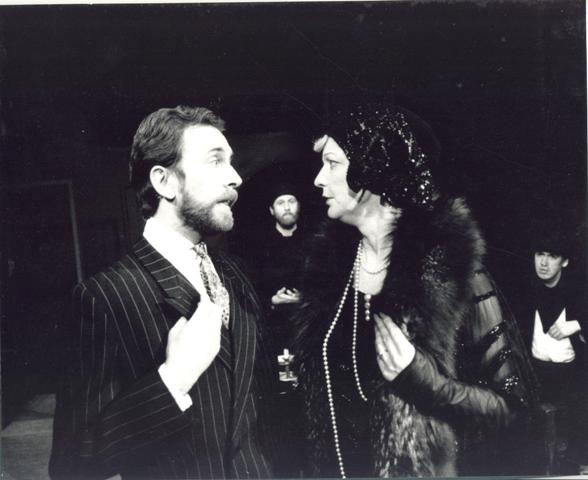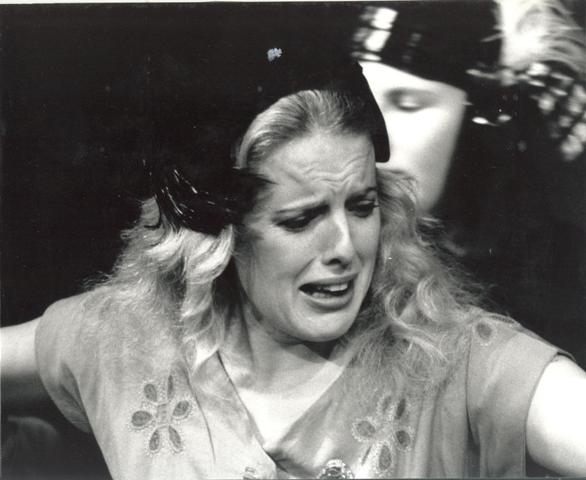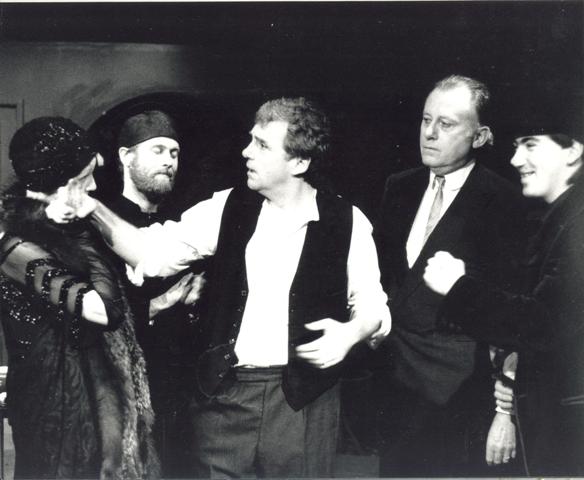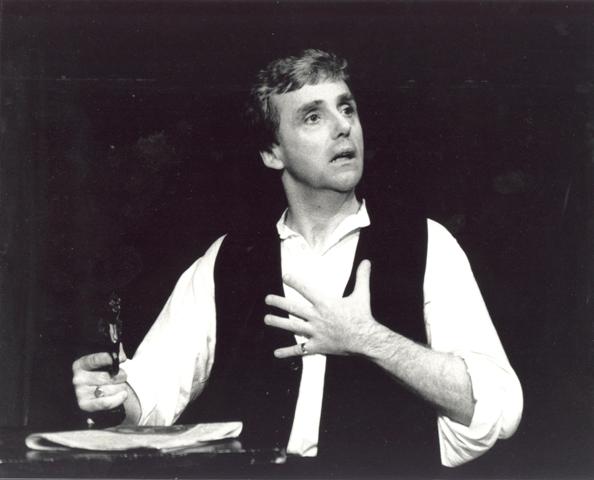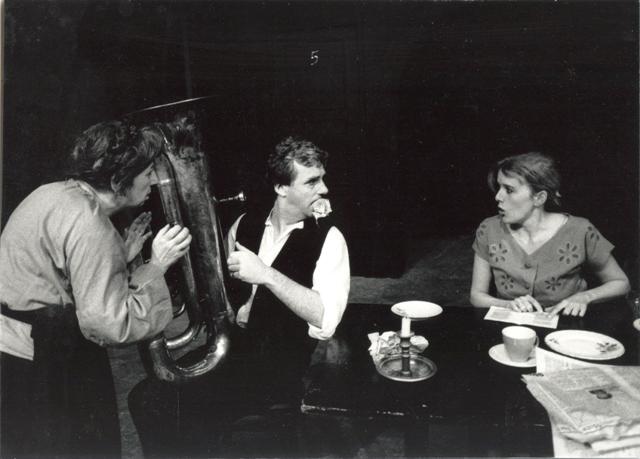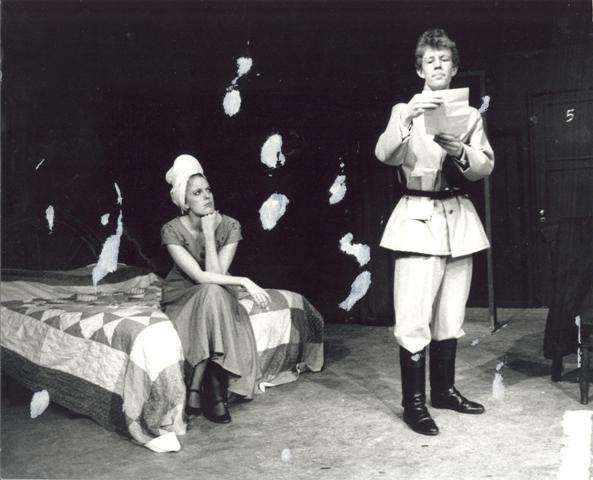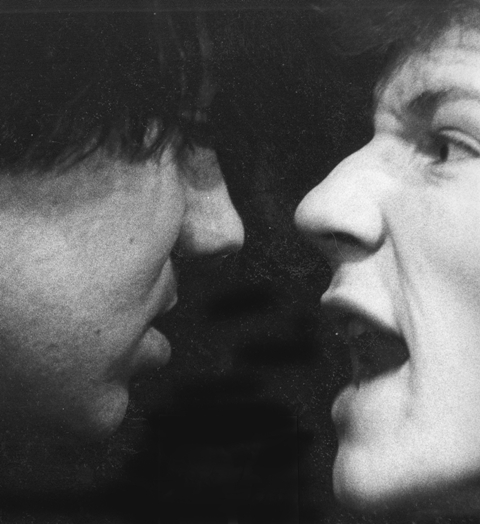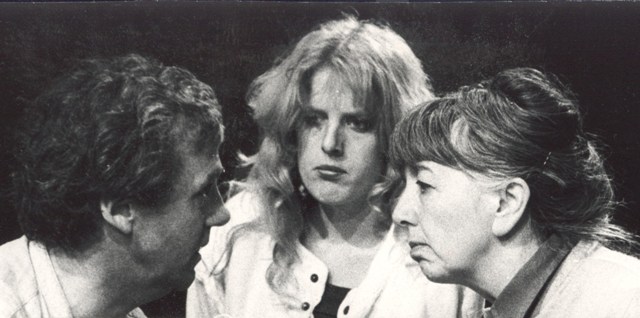The Bench Production
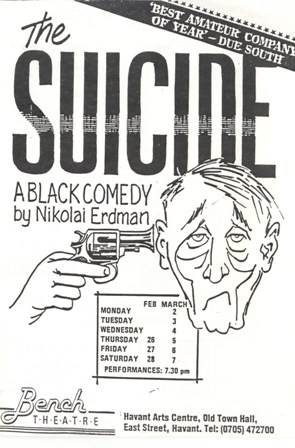
This play was staged at Havant Arts Centre, East Street Havant - Bench Theatre's home since 1977.
Characters
| Semyon Podsekalnikov | Pete Woodward |
| Maria Podsekalnikova | Jude Salmon |
| Serafima Ilinichna | Janet Simpson |
| Volodkina | Janice Bell |
| Margarita Peryesvetova | Ruth Prior |
| Alexander Kalabushkin | Peter Holding |
| Aristarch Golashchapov | David Penrose |
| Cleopatra Maximovna | Lezley Picton |
| Egor Timovyeyevich | Russell Lockwood |
| Nikifor Pugachov | Terry Cattermole |
| Viktor Viktorovich | Damon Wakelin |
| Father Elpidi | David Hemsley-Brown |
| Raissa Filipovna | Jane Hemsley-Brown |
| Boy, Kostya, 2nd Individual | Alan Jenkins |
| Ivan Peryesvetov, 1st Individual | Richard Stacey |
| Zinka, Milliner | Robbie Cattermole |
| Groonya, Dressmaker | Cerys Hogg |
| Deacon, Oleg Leonidovich | Vincent Adams |
| Coffin Bearer | Stephen Evans |
| Coffin Bearer | Pete Codd |
Crew
| Director | Jo German |
| Stage Manager | Janice Bell |
| Assistant Stage Manager | Pete Codd |
| Lighting Design | Jacquie Penrose |
| Lighting Operation | Daniel Shires |
| Sound | Simon Iggleden |
| Costume | Ingrid Corrigan |
| Set Design | David Penrose |
| Set Construction | Pete Codd John Valentine |
| Front of House | Belinda Egginton |
| Poster Design | Charles Payne |
| Programme | Peter Corrigan Paula Martin |
| Publicity | John Valentine |
Director's Notes
A Russian black comedy of the twenties, 'The Suicide' satirises the plight of an unemployed man, desperate enough to contemplate ending it all. The play considers the nature of humour; the hearts of the self-centred characters who will use anyone to further their own selfish aims; and the triumph of the individual, who keeps his dignity in a society where the slogan "for each and all" echoes emptily. For Semyon, only the prospect of death can give the individual the freedom to act and speak as he wishes
All that, and it is still a very funny play.
Jo German
"To sue to live, I find I seek to die
and seeking death, find life: let it come on."
'Measure for Measure', W SHAKESPEARE
Reviews
The NewsSue Wilkinson
Sarcastic black comedy makes 'em die laughing
Suicide is usually no laughing matter, but members of the Bench Theatre had 'em rolling in the aisles with their performance of Nikolai Erdman's black comedy at the Havant Arts Centre.
Banned in the author's homeland, Russia, because of its blatant attack on the Soviet system, 'The Suicide' is full of spleen and sarcasm for the Reds who won't help themselves live with the revolution. Finding comedy where few have gone before or since, Erdman sets up an unemployed man, Semyon, to kill himself. He is beset by lily-livered representatives from the world of business, art, philosophy, passion and the working class, all too scared to speak out themselves, but who each want Semyon to die a martyr on their behalf.
The stage is populated by stereotypes: a northern businessman; a vamp and less than pious clergyman, among other, which are admirably created by the cast. Pete Woodward and Jude Salmon shine in the leading roles. 'The Suicide' can be seen until Saturday, March 7.
The News, Friday 27th February 1987
